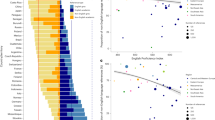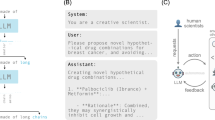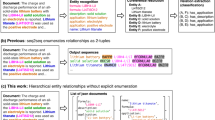Abstract
THE predominance of the English language in modern scientific and technical literature, of which the research workers and writers of reviews are well aware, was clearly demonstrated in an important report published by Unesco1 on different aspects of the language problem in science and technology. It would indeed be interesting to obtain similar information on published works in other fields of knowledge.
This is a preview of subscription content, access via your institution
Access options
Subscribe to this journal
Receive 51 print issues and online access
$199.00 per year
only $3.90 per issue
Buy this article
- Purchase on SpringerLink
- Instant access to the full article PDF.
USD 39.95
Prices may be subject to local taxes which are calculated during checkout
Similar content being viewed by others
References
“Scientific and technical translating and other aspects of the language problem”. Documentation and Terminology of Science. Unesco. (Atar, Genève, 1957).
“The Miscellaneous Works of E. Gibbon, with Memoirs of His Life and Writings”, edit. by Lord Sheffield, in 5 vols. Vol. 1, “Memoirs and Letters” (see pp. 204–205), new edition, 1814 (John Murray, London).
Greig, J. Y. T., “David Hume” (Jonathan Cape, London, 1931).
Author information
Authors and Affiliations
Rights and permissions
About this article
Cite this article
KEILIN, D. The Problem of Language in Publications of Works in Scientific and Other Fields of Learning. Nature 186, 912 (1960). https://doi.org/10.1038/186912b0
Issue date:
DOI: https://doi.org/10.1038/186912b0



